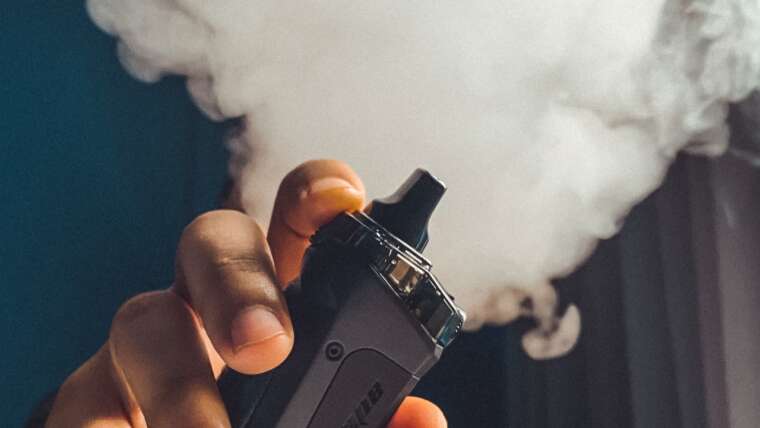
Luxury brand marketing continuously evolves, embracing innovative technologies to create unique, immersive consumer experiences. With the rapid advancements in technology, luxury brands are leveraging tools like augmented reality (AR), artificial intelligence (AI), and other cutting-edge solutions to engage, captivate, and delight their audience. In this article, we will delve into the world of innovative technologies in luxury brand marketing and explore how they shape the industry’s future.
Table of Contents
- 1 Augmented Reality: Transforming Consumer Engagement
- 2 Artificial Intelligence: Personalization and Data-Driven Insights
- 3 Virtual Reality: Immersive Brand Experiences
- 4 Voice Technology: Seamlessness and Convenience
- 5 Blockchain: Transparency and Authenticity
- 6 Social Media and Influencer Marketing: Amplifying Reach
- 7 Data Analytics and Predictive Modeling: Strategic Insights
- 8 Conclusion
Augmented Reality: Transforming Consumer Engagement
Any top-tier agency for luxury brands will tell you that augmented reality has emerged as a powerful tool in luxury brand marketing, allowing brands to bridge the gap between the physical and digital worlds. Luxury brands can offer consumers interactive and engaging experiences by overlaying virtual elements in the real world.
For example, AR can enable virtual try-on experiences, where customers can see how a piece of jewelry or a fashion item looks on them before making a purchase. This technology enhances consumer engagement, increases confidence in buying decisions, and creates a sense of exclusivity and personalization.
Artificial Intelligence: Personalization and Data-Driven Insights
Artificial intelligence has revolutionized luxury brand marketing by providing invaluable consumer behavior and preferences insights. AI algorithms can analyze vast data, allowing luxury brands to personalize their marketing efforts and tailor their messages to individual consumers. From personalized recommendations based on purchase history to AI-powered chatbots providing instant customer service, AI enables luxury brands to create customized and seamless experiences that resonate with their audience.
Virtual Reality: Immersive Brand Experiences
Virtual reality (VR) allows luxury brands to transport consumers to a completely virtual world, creating immersive brand experiences like never before. Luxury brands can use VR to showcase their products, take consumers on virtual tours of their flagship stores or manufacturing facilities, or even create virtual fashion shows. By immersing consumers in a virtual environment, luxury brands can evoke emotions, spark imagination, and forge deeper connections with their audience.
Voice Technology: Seamlessness and Convenience
Voice technology, powered by AI, has become a prevalent part of our daily lives, and luxury brands are harnessing its potential in marketing. Voice-activated devices like smart speakers and voice assistants enable consumers to interact with luxury brands effortlessly. From voice-activated searches for luxury products to voice-controlled shopping experiences, luxury brands are leveraging voice technology to provide seamless and convenient interactions, enhancing the overall customer experience.
Blockchain: Transparency and Authenticity
Blockchain technology has gained prominence in the luxury industry, offering solutions for transparency and authenticity. Luxury brands can use blockchain to authenticate products, track their supply chains, and ensure the integrity of their offerings. By leveraging blockchain, luxury brands can provide consumers with verifiable information about their products’ origin, craftsmanship, and ethical practices, reinforcing trust and authenticity.
Social Media and Influencer Marketing: Amplifying Reach
Social media platforms and influencer marketing are significant in luxury brand marketing. With billions of active users on platforms like Instagram, Facebook, and YouTube, luxury brands can reach a vast audience and engage with them. Influencers, with their large followings and aspirational lifestyles, allow luxury brands to showcase their products authentically and relatable, amplifying reach and influencing consumer purchasing decisions.
Data Analytics and Predictive Modeling: Strategic Insights
Data analytics and predictive modeling have become indispensable tools for luxury brand marketers. Luxury brands can gain valuable insights into consumer preferences, trends, and behaviors by analyzing consumer data. This data-driven approach enables brands to make informed decisions, develop targeted marketing campaigns, and anticipate future consumer needs. From predicting future fashion trends to optimizing pricing strategies, data analytics empowers luxury brands to stay ahead of the curve and deliver exceptional experiences.
Conclusion
Innovative technologies are reshaping luxury brand marketing, offering exciting opportunities for engagement, personalization, and differentiation. Augmented reality, artificial intelligence, virtual reality, voice technology, blockchain, social media, and data analytics are some tools luxury brands leverage to create compelling consumer experiences.
By incorporating augmented reality, luxury brands can enhance consumer engagement through interactive try-on experiences and virtual product demonstrations. Artificial intelligence enables personalization, data-driven insights, and seamless customer service, ensuring tailored experiences for each individual.
Virtual reality allows brands to create immersive environments and transport consumers to unique brand experiences. Voice technology provides convenience and ease of interaction, while blockchain ensures transparency and authenticity. Social media and influencer marketing amplify reach and influence, while data analytics and predictive modeling enable strategic decision-making based on consumer insights.
Integrating these innovative technologies allows luxury brands to craft unforgettable experiences, build stronger consumer relationships, and differentiate themselves in a competitive landscape. By staying at the forefront of technological advancements, luxury brands can continue to captivate their audience, meet evolving consumer expectations, and drive business growth.


